DIY Pest Control Fails: Don't Try This at Home!
DIY Pest Control Fails: Don't Try This at Home!
We get it—DIY pest control sounds tempting. A quick internet search, a trip to the hardware store, and boom! You're suddenly an extermination expert, ready to tackle those property invaders. But as we've seen firsthand, these attempts rarely go according to plan. In fact, some DIY solutions go spectacularly wrong.
We've witnessed countless well-intentioned but ineffective DIY attempts. Here are the most memorable pest control failures we've encountered, along with why these tricks don't work—and what actually does.
1. The "Scarecrow" Mouse Deterrent

The Fail:
Some homeowners believe mice can be scared away by a predator—or at least something that looks like one. One homeowner placed a fake black rat in their house, hoping it would convince real mice to flee.
Mice are survivors, and they're not easily fooled. A plastic rat doesn't move, smell like a predator, or pose any real threat. Since rodents are driven by food and shelter, they won't leave unless these essentials are removed.
The Pro Fix:
Mice infestations require a comprehensive approach: eliminating food sources, sealing entry points, and removing the rodents. Professional-grade bait stations, exclusion techniques, and strategic trapping ensure permanent results.
2. Sonar vs. Bats: The Ultimate Mismatch
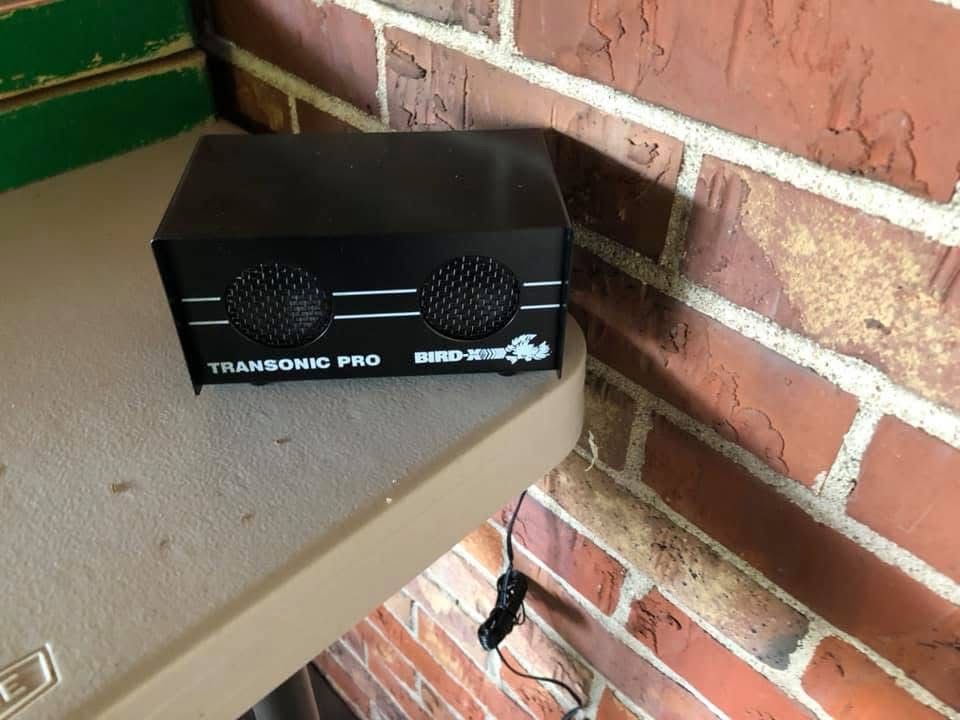
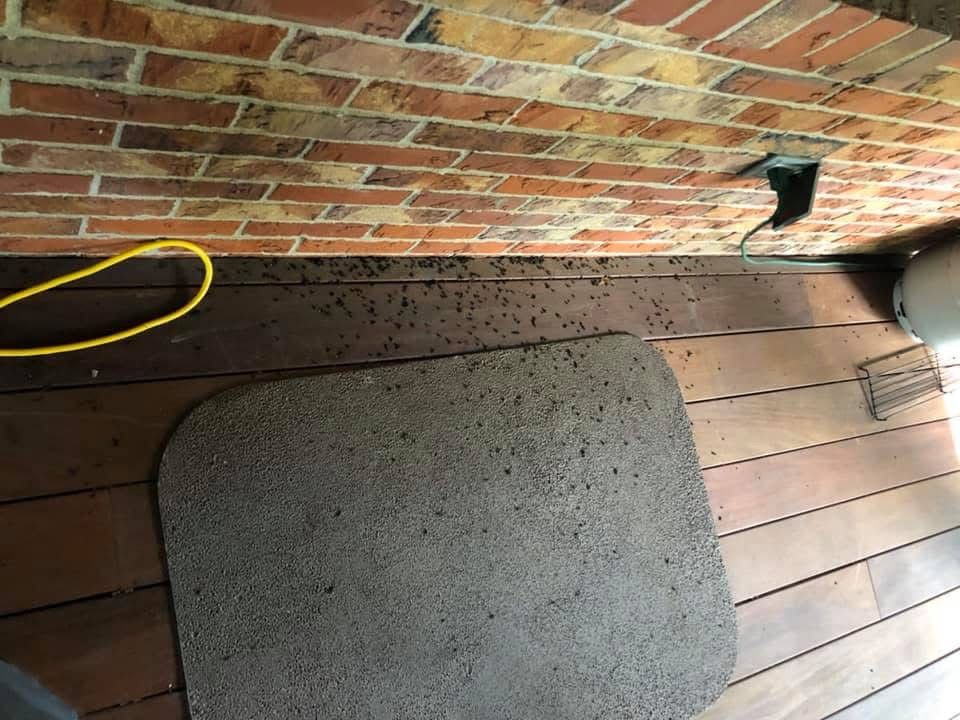
The Fail:
Ultrasonic pest repellers supposedly drive pests away with high-frequency sounds. One homeowner installed such a device on their brick wall, expecting their bat problem to vanish.
Just two feet from the device, bat droppings told the real story—they hadn't left at all! Though these devices sound promising, they're unreliable. Most pests, including bats, either adapt to the noise or ignore it completely.
The Pro Fix:
Bats require proper exclusion techniques: identifying entry points, sealing them correctly, and installing one-way doors that allow bats to exit but prevent their return. This humane method provides lasting results.
3. Raccoon-Proof Spikes (That Weren't)

The Fail:
A homeowner installed deterrent spikes along their siding, believing the uncomfortable surface would prevent raccoons from climbing up to their attic.
Raccoons are incredibly agile and clever. They easily navigate rough surfaces, trees, and fences. Rather than being deterred by the spikes, they simply found another route—typical of their problem-solving nature.
The Pro Fix:
Effective raccoon control demands a thorough approach: identifying entry points, sealing openings, and implementing exclusion techniques. While trapping may sometimes be necessary, preventing re-entry is crucial.
4. The Mothball Myth
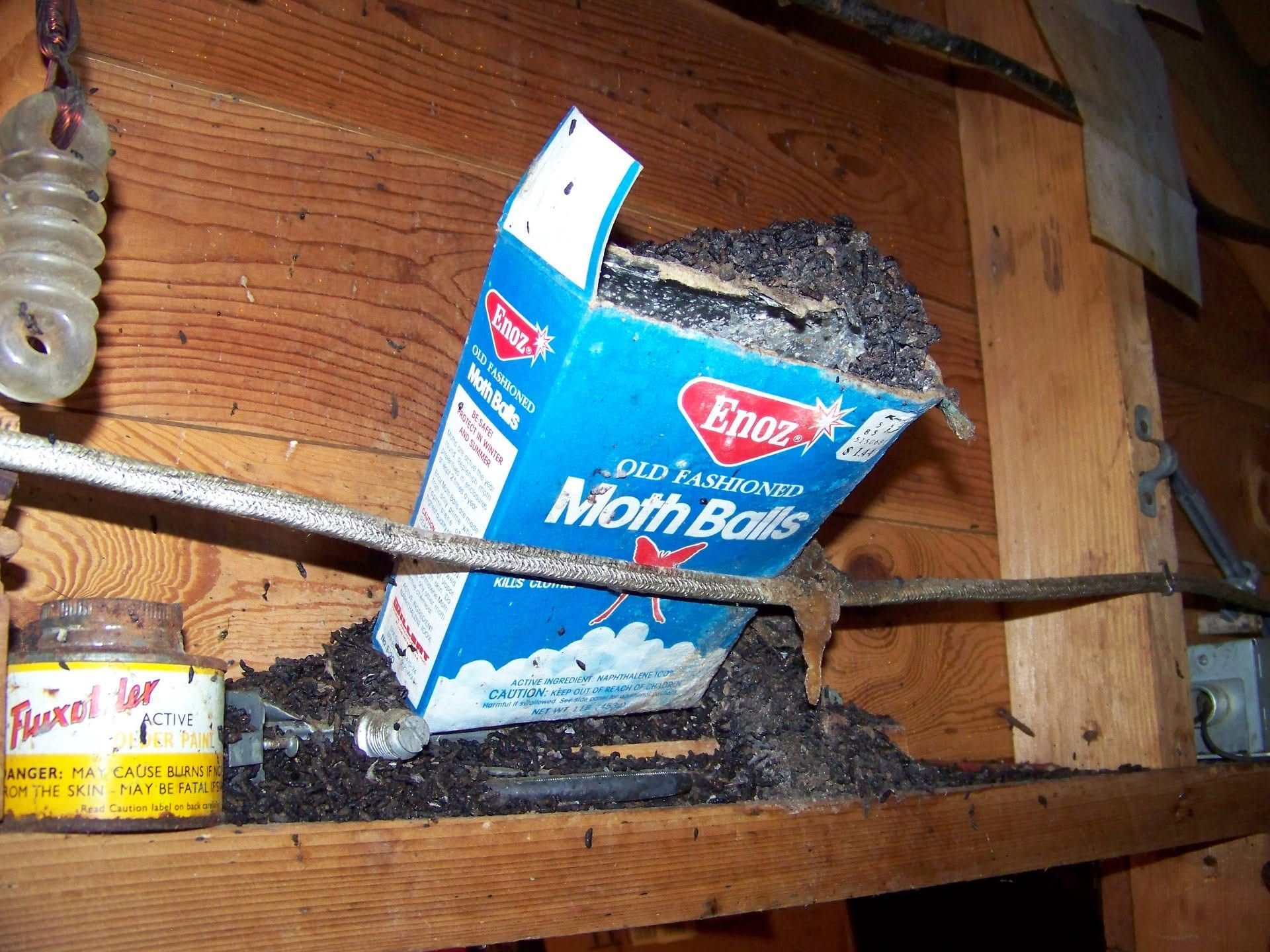
The Fail:
A persistent myth claims that mothballs repel bats and other wildlife with their strong odor. One homeowner scattered mothballs throughout their attic, expecting to drive away bats.
The result? The bats stayed put, and the mothballs ended up covered in guano! While mothballs contain naphthalene, which is toxic at high doses, typical DIY applications aren't effective deterrents. Worse yet, they pose health risks to children and pets.
The Pro Fix:
Instead of these ineffective solutions, professional bat removal focuses on exclusion. We seal entry points and install one-way bat doors to ensure bats humanely exit without returning.
5. "Rodent Repellent" That Became a Snack
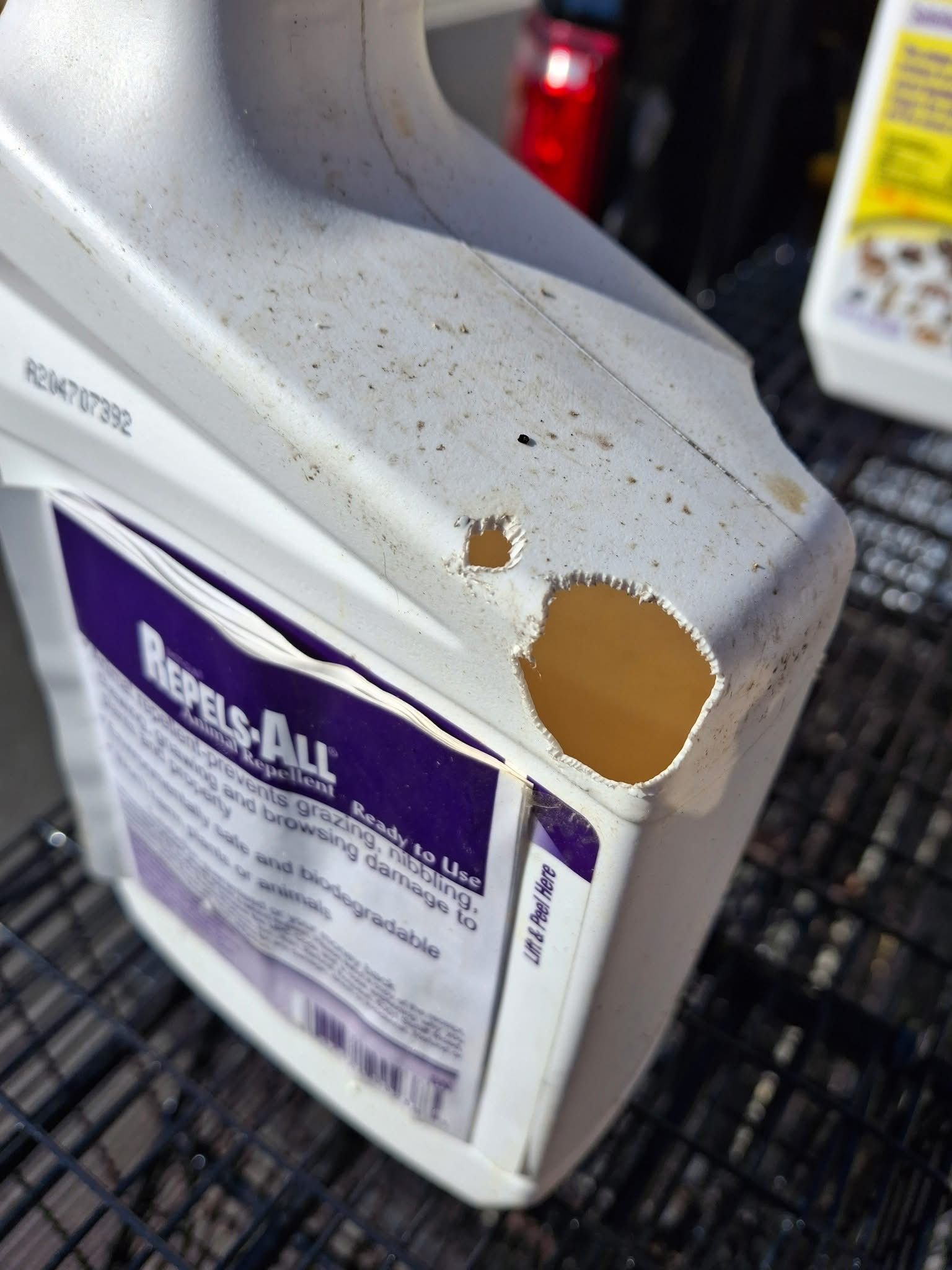
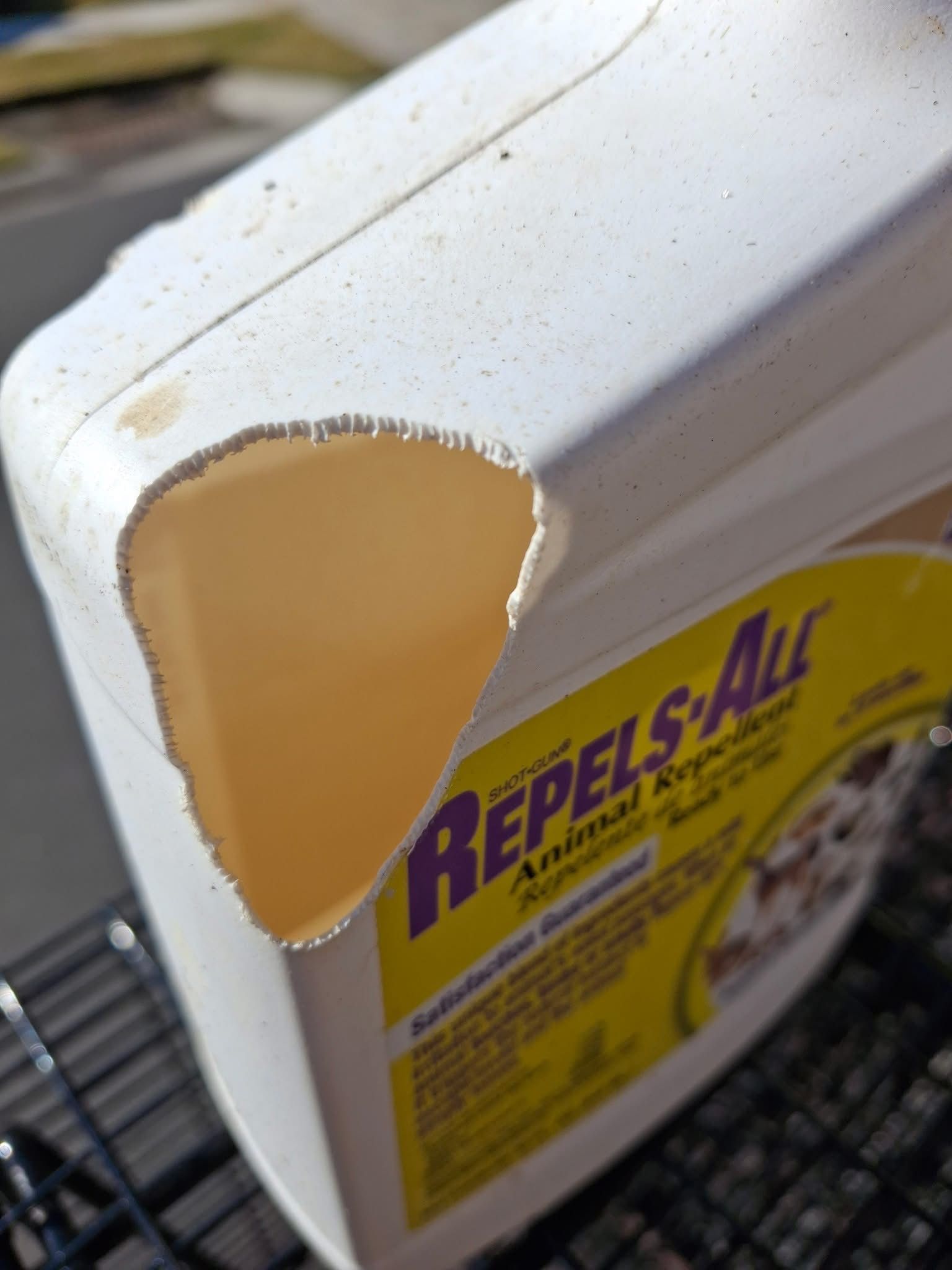
The Fail:
When a homeowner bought "deterrent powder" marketed as rodent repellent, they expected mice to avoid the area. Instead, the mice chewed through the containers—turning their deterrent into dinner!
Most store-bought "repellents" are merely scented powders claiming to repel rodents. Here's the problem: mice and rats adapt easily. With available food and shelter, they'll ignore most deterrents—or in this case, eat them!
The Pro Fix:
Successful rodent control combines eliminating food sources, sealing entry points, and using properly placed, tamper-resistant bait stations and traps. This comprehensive approach ensures lasting results.
The Truth About DIY Pest Control

While DIY methods seem cost-effective and convenient, they often fail because they don't address the root problem. Pests aren't just casual visitors—they're seeking food, shelter, and survival. Effective pest control requires:
- Correct Identification: Knowing what you're dealing with is crucial.
- Proper Exclusion: Sealing entry points is key to stopping infestations.
- Targeted Treatment: Using science-backed methods ensures real results.
- Long-Term Prevention: Pest control isn't just about removal—it's about preventing return visits.
At Drake's Wildlife Services, we skip the gimmicks and use proven, effective solutions. Save yourself the hassle (and the amusing failures) by letting professionals handle your pest problems.
Need help?
Call us today at 260-215-5367 for pest control that actually works!
All Rights Reserved | Drakes's Wildlife Services
